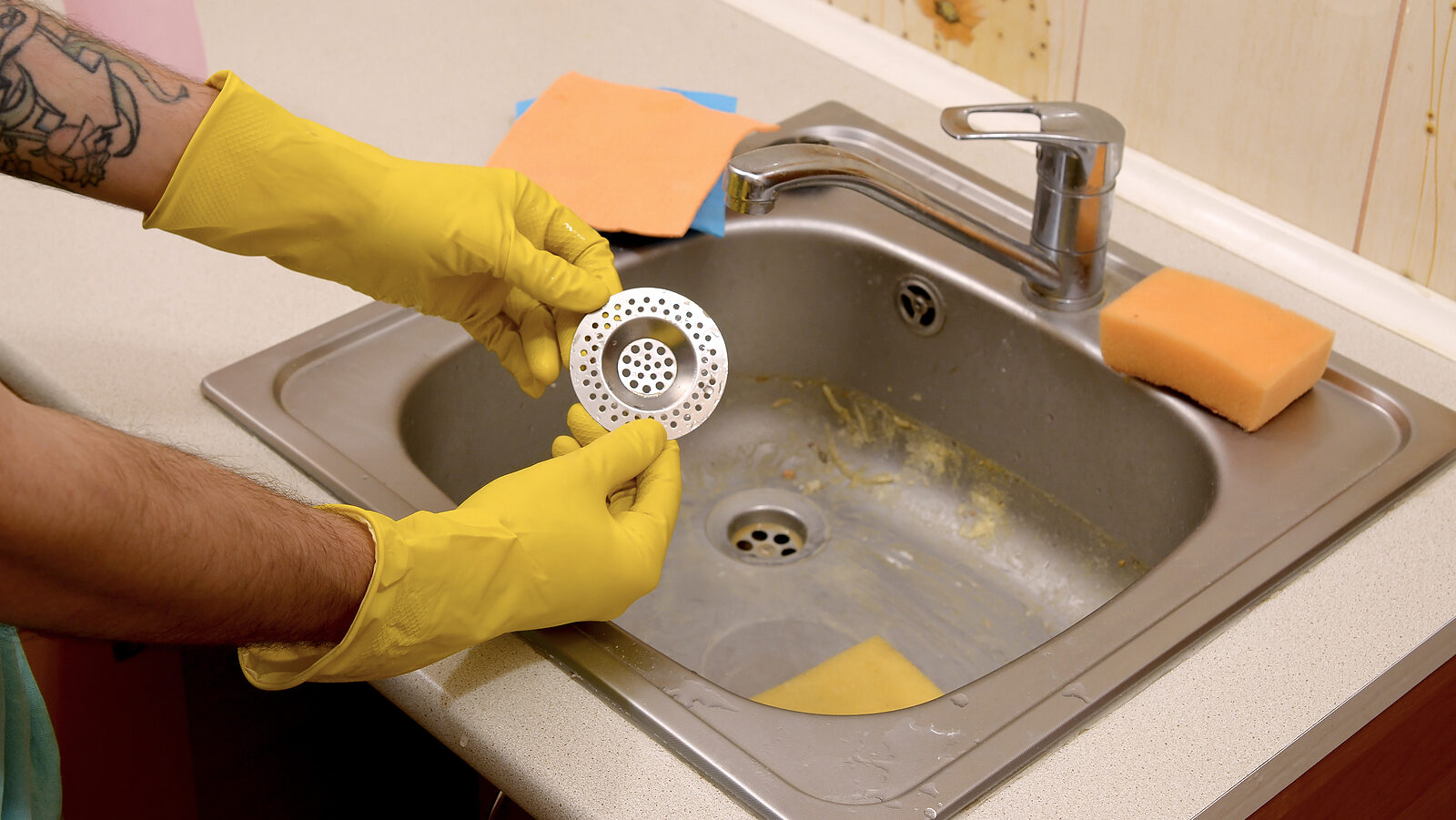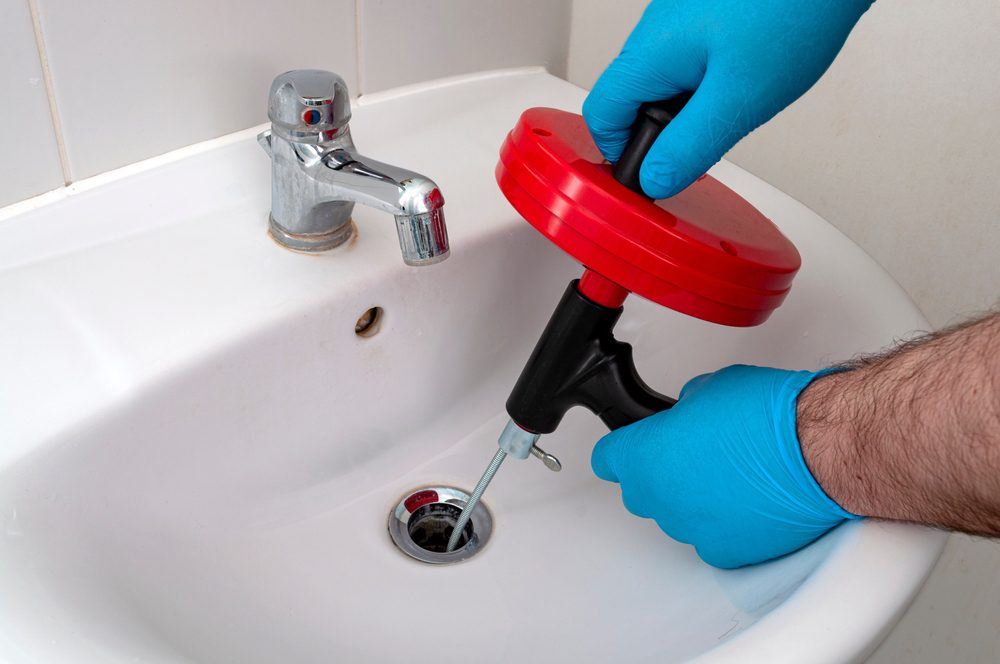Steps To Quickly Resolve A Slow-Draining Sink
Steps To Quickly Resolve A Slow-Draining Sink
Blog Article
Have you been trying to find facts around Solved! How to Fix a Slow Sink Drain?

Introduction
We've all been there: You're cleaning your teeth or washing your hands, and you discover the water pooling in the sink. Rather than rapidly swirling down the drain, it lingers, turning your once-refreshing early morning regimen into a miniature overload scene. A slow-draining sink isn't simply frustrating; it's commonly a sign of bigger pipes concerns hiding under the surface area. The bright side is that the majority of slow-draining sinks can be repaired with a little knowledge, a few basic tools, and some perseverance. Ready to tackle this task head-on? Allow's roll up our sleeves and dive right in.
Recognizing the Causes of a Slow-Draining Sink
Prior to you start poking around in your pipelines, it assists to know what could be creating the downturn. Recognizing the root cause makes it simpler to select the best repair.
Devices and Materials You'll Need
The right devices make all the distinction. Luckily, you won't require a completely equipped plumbing technician's van to do the job.
Step-by-Step Guide to Fixing a Slow-Draining Sink
Now, allow's get involved in the nitty-gritty. This detailed process will guide you via basic techniques to restore your sink's drain.
Action 1: Get Rid Of and Clean the Stopper
Typically, the stopper (that little plug you push down to block water) is the first culprit. Remove it carefully and wipe any type of hair or crud trapped around its base. Wash it completely before placing it back in position.
Action 2: Use a Plunger to Dislodge Debris
Got that bettor all set? Placement it over the drainpipe and give it a few firm pumps. The idea is to develop suction that can loosen any kind of blockage. If you see littles debris floating up, you get on the right track.
Step 3: Try a Drainpipe Serpent or Cable Wall Mount
If the plunger does not work, it's time to highlight the drain snake. Carefully feed it into the drain and spin as you go. You may really feel some resistance-- that's likely the blockage. Maintain turning and drawing up until you eliminate the obstruction. If you don't have a drain serpent, a corrected the alignment of cable hanger can operate in a pinch.
Tip 4: Use a Do It Yourself Drain Cleanser
A natural cleaner made from cooking soft drink and vinegar can break down recurring grime. Put half a cup of cooking soft drink into the drain, followed by half a cup of vinegar. Let it fizz for around 15 mins, after that flush with hot water. This chain reaction frequently does marvels for minor clogs.
Tip 5: Reconstruct and Evaluate the Sink
Put every little thing back together and run the faucet. Does the water currently swirl down the drain at a respectable speed? If yes, give on your own a pat on the back. Otherwise, don't despair-- there are still a couple of more dress up your sleeve.
Vital Tools for Do It Yourself Repair Works
A bettor is your go-to starting point. A tiny, sink-sized plunger creates suction that can remove minor blockages. For even more consistent blockages, a drain serpent (occasionally called a plumbing professional's auger) works marvels. A pair of handwear covers, a flashlight, and maybe a set of protective goggles are also useful.
Suggested Cleaning Solutions
Mild meal soap and warm water can aid break down greasy build-up. A mix of baking soft drink and vinegar is a reliable home remedy, and enzymatic cleaners use an even more environmentally friendly approach. Maintain chemical drainpipe cleaners as a last resort, as they can be severe on your pipes.
Usual Wrongdoers Behind Slow Drainage
So, what's obstructing things up? Usually, it's a blend of everyday particles-- believe hair, soap residue, tooth paste deposit, and leftover food bits. With time, these tiny bits accumulate and cling to the pipeline walls, slowly tightening the passage and making it harder for water to pass through. In many cases, natural resource from difficult water can additionally contribute to the substance, producing the perfect tornado for persistent clogs.
When is it Time to Act?
If you notice the water draining pipes slower than normal, it's a good concept to intervene earlier instead of later on. Waiting too long could lead to complete blockages, unpleasant odors, or perhaps pipe damage. If the water takes more than a couple of secs to remove after switching off the tap, consider it a red flag and prepare to place on your DIY hat.
Security First: Precautions and Prep work
Prior to you launch into unclogging mode, think about safety and security. You're managing possibly dirty water and debris, so slip on a set of handwear covers. If you're making use of chemical cleansers, make sure the space is well-ventilated and adhere to the directions on the label.
Safety Gear and Work Area Setup
Lay down some old towels or rags around the sink area to capture splashes. Eliminate any type of things that might get in your method, like soap dispensers or toothbrush holders. Make certain you have excellent lighting-- grab a flashlight if needed.
Alternate Techniques for Stubborn Clogs
Not all blockages are developed equivalent. If your sink still declines to comply, think about these alternate remedies.
Sodium Bicarbonate and Vinegar Technique
We already touched on this, however it deserves noting once more. This gentle, green technique is more secure than chemical cleansers and usually rather effective.
Chemical Drain Cleaners
Enzyme-based cleansers utilize natural germs to absorb organic matter. They're an outstanding selection if you're looking to stay clear of severe chemicals. Simply keep in mind, they might take a bit longer to function their magic.
Chemical Drainpipe Cleaners: Benefits And Drawbacks
Chemical cleaners can blow up via difficult obstructions quickly, yet they're not without downsides. They can create warmth and fumes, damages pipelines if made use of exceedingly, and posture ecological dangers. Utilize them moderately, and constantly adhere to the instructions very carefully.
Safety Nets to Keep Your Sink Flowing
Prevention is the very best remedy. By adopting a couple of straightforward behaviors, you can keep your sink from decreasing in the first place.
Routine Cleansing Habits
Clean down the sink basin and component area frequently. Eliminate hair or food particles before they have a possibility to wash down the drain.
Staying Clear Of Dangerous Substances Away
Reconsider before discarding coffee premises, grease, or coarse vegetable scraps down the sink. These wrongdoers hold on to pipe walls, developing clogs in time.
Regular Upkeep Checks
Arrange a quick regular monthly examination. Run hot water through the sink for a couple of mins, focusing on the circulation. If it appears slow, act quick prior to it ends up being a full-blown clog.
When to Call a Professional Plumbing
Sometimes, regardless of just how difficult you try, that obstruct just will not move. That's when it's time to bring in the pros.
Indications That Suggest a More Severe Concern
If your sink drains pipes gradually despite numerous efforts, or if you observe water supporting in various other components (like your shower or bathroom), you might have an extra major plumbing problem lurking deeper in the system.
Balancing DIY Initiatives with Expert Assistance
While DIY can conserve you money and use a sense of accomplishment, there's no shame in calling a specialist. An expert plumbing professional can evaluate your whole pipes setup, guaranteeing there's no underlying damages or long-lasting problem that could cost you a lot more in the future.
Comparing Prices and Long-Term Solutions
Before choosing, consider the big picture. A low-cost, quick fix could resolve the trouble temporarily, yet purchasing a more irreversible service can save you money and tension in the future.
Evaluating the Costs of DIY vs. Professional Repairs
Do it yourself solutions usually set you back bit greater than the rate of a bettor or a container of baking soda. Expert solutions, on the other hand, included a cost however may protect against repetitive problems and expensive fixings later on.
Purchasing Quality Fixtures and Upgrades
If your sink's design adds to frequent clogs, it might be worth upgrading to higher-quality fixtures or changing the pipes layout. Consider this an investment in your house's capability and comfort.
Final thought
A slow-draining sink can feel like a minor irritability, yet it's typically an indicator that your plumbing needs a little tender loving care. By comprehending the root causes, employing the right tools and methods, and dedicating to basic preventive measures, you can maintain your sink flowing freely. And when all else stops working, never ever hesitate to call in an expert-- your home's pipes is worth the investment in care and maintenance.
Three Common Ways to Fix a Slow Drain
Baking Soda Method
Boil a full pot of water. Measure out cup of baking soda and pour it down the drain. Then take cup of the magical cleansing substance known as white vinegar and drop that down there too. Allow the mixture to fizz in the drain for five minutes as the vinegar and baking soda combine. Now dump in that whole pot of boiling water. This combination of cleaning substances should clear out anything that is causing your sink to drain slowly. If it doesn t...
Zip-It
If the baking soda method doesn t clear out your drain, it may be because a significant amount of hair and/or other debris has collected there and you need to remove it. Purchase a Zip-It tool at any home improvement or hardware store and insert it into your drain. It will catch any collected hair or debris that s blocking the flow of water. Pull it out. If it s got a big clump of hair, etc. on the end, you ve probably got your culprit.
Drain Cleaner
If these methods don t work, there is the standard drain cleaner that you can also buy in a hardware store or even your local grocery store. It s better if you can use a household solution, but these drain cleaners often work in a pinch. They re very simple to use. You generally just dump them in your drain and wait. If even this method is not effective, it may be time to call the plumber.
https://www.mrrooter.com/oneida/about-us/blog/2017/july/three-common-ways-to-fix-a-slow-drain/

I was introduced to that report about from someone on a different web property. Loved our write up? Please quickly share it. Help somebody else find it. I praise you for your time. Please come visit our site back soon.
Click Here Report this page